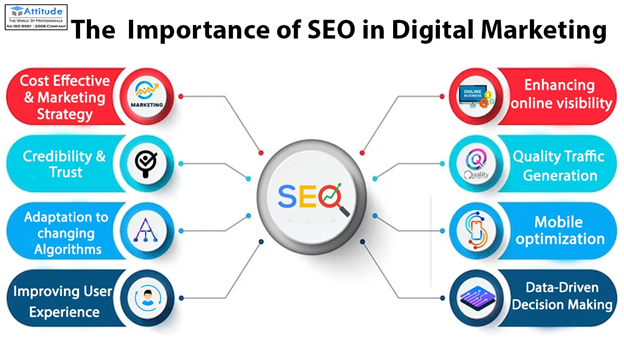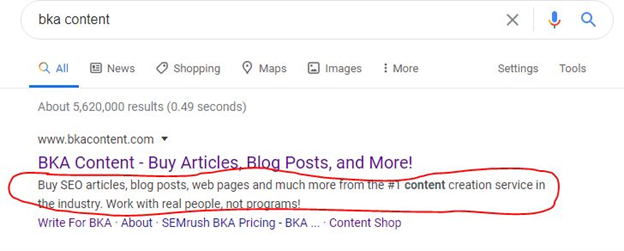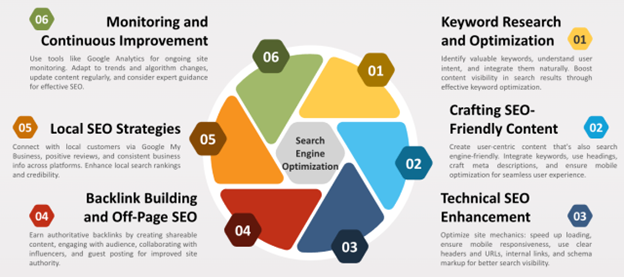Content
SHARE

Search engine optimisation (SEO) plays a vital role in achieving higher rankings on search engine result pages (SERPs) and increasing your website’s visibility. In this article, we will delve into the importance of SEO in content creation and explore effective strategies to improve your website’s ranking.
[thrive_leads id=’8325′]
Understanding the Importance of SEO in Content Creation
As digital marketing continues to evolve, SEO has become a crucial aspect of any successful marketing strategy. SEO ensures that your content is relevant, engaging and optimised to rank higher in search engines. With the ever-increasing competition online, ignoring SEO can hamper your efforts to attract organic traffic to your website. SEO is vital in driving targeted traffic to your website. It serves as the backbone of any digital marketing campaign, enabling your content to be easily discovered by potential customers. Implementing effective SEO techniques can improve your website’s visibility, attract more visitors, and boost your business’s online success.

The Role of SEO in Digital Marketing
SEO forms the foundation of any effective digital marketing strategy. It empowers your content to be easily discovered by potential customers, elevating brand awareness and channelling targeted traffic to your website. You can enhance your website’s visibility, attract visitors, and propel your online success by implementing SEO techniques. Consider the scenario where you’ve crafted an exceptional piece of content. Its impact, however, may be limited if it doesn’t rank well on search engine result pages (SERPs).
This is precisely where SEO becomes indispensable. By optimising your content for search engines, you significantly increase its likelihood of securing higher positions in rankings, ensuring greater visibility among potential customers. Moreover, SEO helps you understand your target audience better. By conducting keyword research and analysing search trends, you can gain valuable insights into what your potential customers are looking for. This knowledge can then be used to create content that aligns with their needs and interests, increasing the chances of attracting and engaging them.
How SEO Impacts Your Website’s Visibility
Search engines, such as Google, use complex algorithms to determine the relevance and credibility of online content. By optimising your content for SEO, you can improve its visibility on SERPs. This, in turn, increases the likelihood of attracting organic traffic, establishing your website’s authority, and generating leads or sales. When your website ranks higher in search engine results, it increases visibility and builds trust among users. Research shows that users tend to trust websites that appear on the first page of search results more than those on subsequent pages. By implementing effective SEO strategies, you can enhance your website’s credibility and make it more likely for users to click on your link.
Furthermore, SEO is not just about optimising your content for search engines; it also focuses on improving the overall user experience. Search engines prioritise websites that offer a seamless user experience, including fast loading times, mobile-friendliness, and easy navigation. By optimising these aspects of your website, you improve its chances of ranking higher and enhancing the user’s experience, leading to increased engagement and conversions. SEO plays a crucial role in content creation and digital marketing. It ensures your content is relevant, engaging, and optimised to rank higher in search engine results. By implementing effective SEO techniques, you can increase your website’s visibility, attract targeted traffic, and boost your business’s online success. So, don’t underestimate the power of SEO and make it an integral part of your content creation strategy.
The Basics of SEO-Friendly Content Creation
Creating SEO-friendly content involves various key factors that contribute to better visibility and rankings on search engines. Let’s explore two fundamental aspects of the process:
Keyword Research For Content Creation
Keyword research is the foundation of your SEO content strategy. By identifying the keywords and phrases that your target audience is using to search for information online, you can create content tailored to their needs. This will improve your chances of ranking higher in search engine results and attracting qualified traffic to your website.
The Importance of Quality Over Quantity in SEO Content
While it’s important to consistently produce content, quality should always take precedence over quantity. By creating valuable, informative, and engaging content that meets the needs of your target audience, search engines are more likely to prioritise it in their ranking algorithms. Quality content not only helps to build credibility and authority but also encourages readers to spend more time on your website, reducing bounce rates and improving SEO metrics.
Writing Content That Search Engines Love
Writing content that pleases both search engines and your audience requires a well-rounded approach. Here’s how you can achieve this:
The Art of SEO Copywriting
Effective SEO copywriting involves creating compelling content that incorporates relevant keywords naturally. It should resonate with your target audience while also sending clear signals to search engine crawlers about your content’s relevance. By striking the right balance between creative writing and strategic keyword placement, you can improve your chances of ranking higher in SERPs.

Incorporating Keywords Naturally Into Your Content
Keyword stuffing is a practice to be avoided at all costs. Instead, focus on seamlessly integrating your researched keywords into your content. Use them naturally in your headings, subheadings, and throughout the body of your text. This will help search engines understand the context and relevance of your content without compromising the readability and user experience.
Optimising Your Content For SEO
Optimising your content involves various technical aspects that contribute to better rankings. Let’s explore two important factors:
The Role of Meta Tags in SEO
Meta tags provide valuable information to search engines about the content of each page on your website. By optimising your meta titles and meta descriptions, you can improve the overall visibility and click-through rates from SERPs. Ensure that your meta tags contain relevant keywords and accurately summarise the content of each page.
The Importance of Internal and External Linking
Internal linking refers to linking between pages on your website, while external linking involves linking to relevant and authoritative sources outside your website. Incorporating both links in your content provides more value to your readers and enhances your website’s overall SEO performance. Internal and external links help search engines understand the structure and credibility of your content, ultimately improving your rankings.

Monitoring and Improving Your SEO Content Strategy
Developing a solid SEO content strategy is an ongoing process. Here are a few strategies to monitor and continuously improve your SEO efforts:
Tools For Tracking Your SEO Performance
Utilise SEO analytics tools to monitor your website’s performance and identify areas for improvement. These tools provide valuable insights into your website’s traffic, user behaviour, and keyword rankings. By regularly analysing this data, you can make informed decisions to enhance your SEO content strategy and drive better results.
Regularly Updating and Improving Your Content For SEO
SEO is an ever-changing field, and search engine algorithms continually evolve. Regularly updating and improving your content is essential to maintain and improve your rankings. Conduct keyword research periodically to identify new opportunities, update outdated content, and incorporate fresh insights to ensure your website remains relevant and attractive to both search engines and your audience.
Conclusion
When it comes to content creation for SEO, it’s crucial to understand the importance of optimisation and the strategies that can help you rank higher in search engines. By focusing on keyword research, quality content creation, optimisation techniques, and continuous monitoring, you can improve your website’s visibility, attract organic traffic, and boost your overall online success.
[thrive_leads id=’3540′]
Frequently Asked Questions About Content Creation for SEO
What Content Should I Create For SEO?
SEO content can include any of the following: Product pages – These are the bread and butter of any retail e-commerce site. A good product page can serve as both SEO content and a PPC landing page. Blog posts – A blog is one of the easiest ways to create a regular stream of effective SEO content.
How Do You Approach Creating Content For SEO?
- Discover your Target Audience
- Conduct Keyword Research and Develop a Topic List
- Incorporate Various Content Formats
- Fully Optimise Content
- Schedule Posts Often
- Develop a Link Building Strategy
- Continually Update User Experience and Content
- Track and Measure Results
What Is SEO Content?
SEO content is online content designed to rank in search engines (like Google). Also, content written for SEO is typically optimised around a specific keyword. And when it comes to search engine optimisation, make no mistake: Content is KEY.
Why Do You Need SEO Content?
One of the most important functions of SEO is increasing visibility, which means making it easier for prospects to find you when they search for something you have to offer. Visibility is directly related to your ranking.
What Is an Example of SEO?
The most common example of on-page SEO is optimising a piece of content to a specific keyword. For example, if you’re publishing a blog post about making your own ice cream, your keyword might be “homemade ice cream.” You’d include that keyword in your post’s title, slug, meta description, headers, and body.












